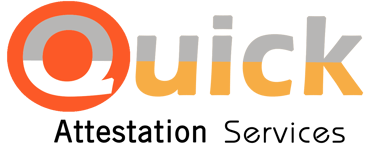Mofa Attestation in UAE & Saudi: A Comprehensive Checklist for Expats and Employers
7/10/20254 min read


Understanding MOFA Attestation
Mofa attestation refers to the process of verifying documents through the Ministry of Foreign Affairs (Mofa) in the United Arab Emirates (UAE) and Saudi Arabia. This procedure is particularly crucial for expatriates who seek to legalize their personal and commercial documents for use within these countries or abroad. By obtaining Mofa attestation, individuals ensure that their documents are recognized and accepted in various official capacities, facilitating smoother transactions and engagements in both personal and professional matters.
The role of Mofa in the attestation process cannot be overstated. The Ministry serves as a regulatory body that verifies the authenticity of documents submitted for attestation. This step is vital for the validity of documents, which may include educational certificates, marriage licenses, medical records, and commercial documents such as contracts or agreements. Each document type serves a specific function and carries distinct requirements that must be adhered to during the attestation process.
For expatriates, understanding the significance of Mofa attestation is essential; it allows them to establish legal residency, enroll in educational institutions, or conduct business legally within the UAE or Saudi Arabia. Failure to achieve proper attestation may result in complications, such as delays in processes, rejections of applications, or even legal penalties. Therefore, it is imperative for expatriates and employers to familiarize themselves with the Mofa attestation process to ensure that all necessary documents are duly verified and compliant with local regulations.
In summary, Mofa attestation is a critical step for expatriates in the UAE and Saudi Arabia, involving the verification of multi-faceted documents through the Ministry of Foreign Affairs. Understanding this process enables individuals to navigate their legal and administrative responsibilities effectively.
Checklist for Expatriates: Required Documents for MOFA Attestation
For expatriates navigating the MOFA attestation process in the UAE and Saudi Arabia, having a clear checklist of required documents is essential. The MOFA attestation, or Ministry of Foreign Affairs attestation, is a crucial step for validating educational, personal, and professional documents. The primary documents required for this process are identification documents, educational certificates, and employment-related documents.
Firstly, a valid passport is mandatory—this should be accompanied by a copy of the residence visa, which proves the expatriate’s legal status in the country. Next, educational certificates need to be considered, including degrees, diplomas, and transcripts, all of which must be verified by the local education authority or respective institutions. This step establishes legitimacy and authenticity, making it vital for the process.
In addition to educational certificates, work-related documents, such as employment letters or contracts, are also necessary. These need to explicitly outline the position held, duration of employment, and salary details. Moreover, it is advisable for expatriates to acquire notarization for their documents from a recognized notary public before submission to MOFA. Having these documents notarized adds an additional layer of validation, which can streamline the attestation process.
Another key requirement is the completion of an attestation application form, which is generally available on the MOFA website or at designated service centers. Expatriates should also gather any relevant medical or personal documents if required, especially for those obtaining family attestation. To efficiently compile these documents, creating a dedicated folder and checking each item against the checklist can be beneficial. This proactive approach minimizes the risk of missing any essential elements, ultimately facilitating a smoother MOFA attestation process.
Checklist for Employers: Ensuring Compliance in MOFA Attestation
Employers play a pivotal role in the MOFA attestation process, particularly when it involves expatriate employees. To ensure compliance with relevant regulations and to facilitate a smooth attestation process, it is essential for employers to manage specific documentation carefully. The following checklist outlines the key responsibilities that employers must uphold.
First and foremost, employers must ensure that all necessary documents are collected and organized before initiating the attestation process. This includes securing copies of educational qualifications, professional certificates, and relevant identity documents (passport and residence visa) for expatriate workers. Furthermore, verification of these documents is crucial, as any discrepancies may lead to significant delays or outright rejections in the attestation process.
Employers are also responsible for providing a letter of employment, which clearly states the expatriate's job title, salary, and duration of the employment contract. This letter is vital for the Ministry of Foreign Affairs (MOFA) in evaluating the legitimacy of the employment status. Additionally, employers should obtain an official company stamp, as this is often required on various documents being submitted for attestation.
To minimize the risk of delays, it is advisable for employers to stay updated on the latest MOFA regulations and guidelines. This can be achieved through regular communication with the MOFA or engaging with professional attestation services that specialize in navigating the complexities of the MOFA process. Furthermore, empowering employees by educating them about the necessary steps in the attestation journey can also contribute to a more efficient process.
In conclusion, by adhering to this checklist and implementing best practices, employers can significantly enhance their compliance with MOFA attestation requirements. This not only aids in the efficient management of expatriate documentation but also fosters a supportive environment for expatriate employees navigating the certification landscape.
Navigating Common Challenges in MOFA Attestation
When embarking on the process of MOFA attestation in UAE and Saudi Arabia, expatriates and employers often encounter various challenges that may hinder their progress. One of the most prominent issues is delays. The attestation process can be lengthy due to bureaucratic procedures, especially if documents are not submitted in the required format or if additional verification is needed. To mitigate these delays, it is crucial to ensure that all documents are meticulously prepared and submitted according to the specific guidelines laid out by the relevant authorities.
Another common obstacle faced during MOFA attestation is the issue of missing documents. Expatriates may overlook certain essential papers such as educational certificates or marriage licenses. It is advisable to create a comprehensive checklist of required documents before initiating the application process. This approach helps minimize the risk of omissions that could further delay the attestation proceedings.
Language barriers frequently challenge expatriates navigating the complex procedures of attestation. In regions where English may not be the primary language, misunderstanding requirements or miscommunicating with authorities can lead to unnecessary setbacks. Engaging with local attestation services or legal experts can provide invaluable assistance in overcoming these language barriers. These professionals often possess the expertise to interpret regulations and communicate effectively on behalf of expatriates.
Additionally, it is essential to acknowledge that MOFA requirements can vary significantly between different regions. Employers and expatriates must familiarize themselves with the local requirements specific to their region to avoid complications. Staying informed about updates or changes to the attestation process is vital for a smoother experience. By implementing these strategies and remaining proactive, expatriates and employers can navigate through the challenges of MOFA attestation with greater ease and efficiency.
